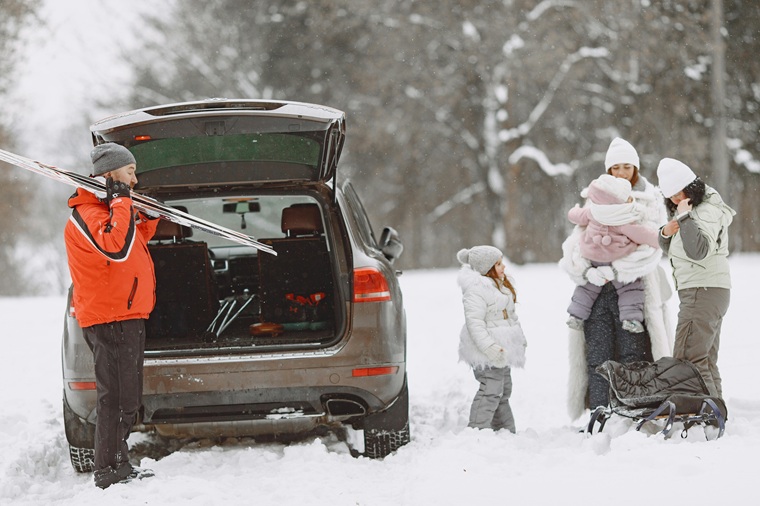
Family road trips are truly special times, aren’t they? They offer more than just miles on the odometer. They are wonderful chances for creating amazing memories and sharing laughter.
Beyond the snacks and sing-alongs, do you know that road trips can be amazing opportunities for learning without feeling anything like a classroom?
Yes, you can turn those long stretches of highway into moments of discovery, creativity, and real-world education. All you need is a little bit of creativity, and every mile can become a discovery.
Here, we’ll share how you can make your next family road trip an enriching learning adventure.
#1 Turn the Car into a Mobile Classroom
The family car can easily become a hub for learning and discovery, even while on the move. Engaging activities can transform travel time into valuable learning moments.
Classic car games are ideal for building skills without relying on screens. They encourage observation, memory, and language development for everyone.
You can play the Alphabet game. It challenges children to find words on road signs starting with each letter, from A to Z.
I Spy is also great as it encourages keen observation of surroundings. In this game, one person secretly picks an object they can see and gives a clue, like its color or starting letter. Others then guess the object, which helps young children develop descriptive language and observation abilities.
Podcasts and audiobooks are also amazing tools for learning on the go. They bring stories and facts to life, making long drives fly by.
Wow in the World (NPR) podcast, Brains On!, and Storynory are wonderful travel companions. As far as audiobooks are concerned, ‘Ghost’ or ‘All Thirteen: The Incredible Cave Rescue’ are gripping stories that can spark conversations about real-life events.
#2 Talk About Road Safety
Safety is important, especially when traveling. Road trips offer perfect opportunities to teach children about staying safe.
For younger kids, focus on simple habits like always buckling up and never touching doors or windows without permission.
With teens, go deeper. Talk openly about the dangers of distracted or reckless driving. Explain why texting while driving or ignoring road signs can have serious consequences. Share real-life examples that make the message stick.
Take the recent tragedy in Atlanta, for example. FOX 5 reported that a 19-year-old lost his life when a fleeing vehicle struck his Honda Accord in the Little Five Points neighborhood—a location already known for traffic dangers.
Discussing incidents like these can help teens understand how one bad decision can have devastating consequences.
Don’t stop there, however. Teach them what to do should they be involved in an accident.
Atlanta Personal Injury Law Firm advises car crash victims to call the police, document the accident, and seek medical attention right after the accident.
In serious cases like this incident, Atlanta car accident lawyers can be a vital resource. These professionals can guide families through the legal process as well as advocate for victims’ rights during difficult times.
#3 Visit Educational Stops Along the Way
The U.S. is full of amazing places where history, science, and culture truly come alive for families.
Historical sites and cities, such as Washington, D.C., are worth exploring. It’s a free-entry learning paradise with museums and monuments. Boston’s Freedom Trail also brings history to life, and Philadelphia offers Independence Hall and the Liberty Bell.
For science and space centers, you can visit Chicago’s Museum of Science and Industry and the U.S. Space & Rocket Center in Huntsville, Alabama.
National Parks like Yosemite, Grand Canyon, Yellowstone, and Zion are nature’s best classrooms. They offer lessons in geology, ecosystems, wildlife, and conservation.
Don’t overlook working farms, observatories, or science centers. Many welcome visitors and offer tours that show real-world applications of what kids learn in school. Watching scientists at work or seeing how food is produced creates lasting impressions and might even inspire future career interests.
To make these stops truly engaging, mix different types of activities. Balance museums and learning sites with dedicated time for play and relaxation. A playground, a picnic, or simply an open space can recharge everyone and prevent burnout.
Also Read: Travel in Style: The World’s Most Instagrammable Cars and Road Trips
Family Road Trips Adventure Awaits—Are You Ready?
Turning family road trips into learning adventures doesn’t require elaborate plans or extra work. It’s really about being intentional.
When kids see learning as part of everyday life, especially in fun, real-world settings, they naturally become more curious, engaged, and excited to discover more. So, pack your bags, fill up the tank, and get ready to hit the road for the next learning adventure.








